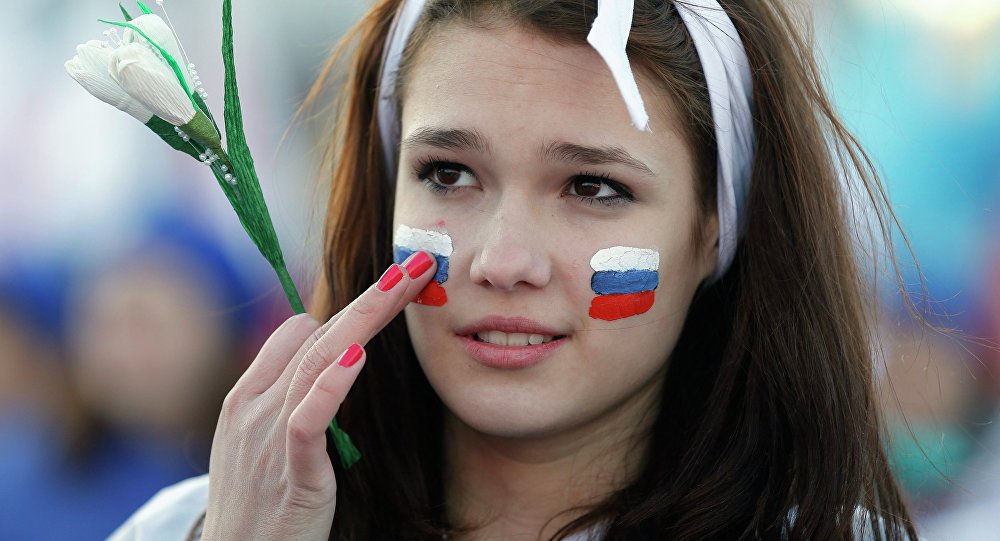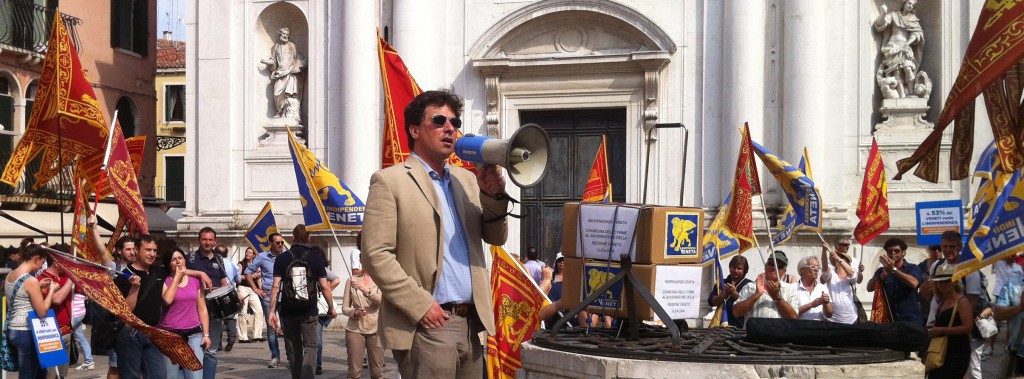Why did Venice recognize Crimea as Russian?

© REUTERS/ Maxim Shemetov
The author of the resolution on the recognition of Crimea’s status in Russia, gave an interview to Gazeta.ru, on why Venice has to involve itself in the Crimean issue and how it will help to create a “new Europe”. The initiative from conservative Stefano Valdegamberi was approved on May 18 in the regional parliament in Venice.
Appeared in Bulgarian at A-specto, translated by Borislav exclusively for SouthFront
What were the considerations which led the initiative for a resolution on the recognition of Crimea as part of the Russian Federation?
We decided to start this initiative because we disagree with the policy of the EU and the central government of Italy. These institutions made a mistake by introducing sanctions and other restrictions against Russia. Furthermore, we want to recognize the right of people to self-determination in Crimea. The population of the peninsula held a referendum and consciously chose to exist within the Russian Federation.
What exactly are Venice’s interests concerning the specific situation of Crimea?
The economy of the Veneto (the name of the area in which Venice is located) has long been closely associated with Eastern European countries and Russia. We export fruit and meat. Following the introduction of the sanctions, Venice suffered significant losses. For example, last year we lost more than 600 million euros from exports. We can not understand why this is happening. Why is the EU introducing sanctions against Russia, provided that the accession of Crimea to the Russian Federation has not violated international law?
Does the resolution of Venice on Crimea have a binding legal character?
This will be a recommendation to the central government in the country. But this is only the first step. We will strive for other regions in Italy to adopt such a resolution, to show the central leadership what the necessary changes of policy on Russia should be. Our initiative represents a symbolic gesture. But in addition, we intend to create a special committee to bring together public figures and representatives of business, to transfer this initiative at the level of the European Union.
Your political partners already tried to use the experience of Crimea in certain ways. For example, two years ago, Venice held a voting online for this region to leave Italy, and supporters of this idea turned out to be more than 80%. To what extent does that relate to the current situation?
I was the fourth man who then cast their vote “in favor” in that particular vote. This was related to attempts to organize a referendum in the area of Venice, in order to determine the status of this region. The online voting was a private initiative and its results can be interpreted in different ways. It is difficult to say how many people actually took part in the vote because it is impossible to verify.
For myself I can say that in 2013 I proposed to the Venetian Parliament a bill to hold a referendum on the area leaving the composition of Italy. But they did not accept it. The Supreme Court acknowledged my initiative as inconsistent with the country’s constitution. But I and my partners do not agree with this decision. Our people should have the right to decide whether they want to be part of Italy or not. When the overwhelming majority of the population of the region Venice manifests its desire for independence, the authorities are obliged to listen to the will of the people. What happened in Crimea is what we are trying to achieve in Venice. The parliament approved the bill of the referendum on the peninsula, a vote took place and finally the population of Crimea realize their right to self-determination. The European Union can not deny the fact that Crimean people speak Russian, feels like a part of Russian society and that Crimea was transferred to Ukraine because of the decision of Nikita Khrushchev.

From the perspective of the central EU authorities, separatism is one of the biggest threats to the Union that can completely destroy the current political system in Europe. Do you think the current initiative will it be beneficial for the EU? What about other similar calls for the division of the European countries?
We are trying to create a new Europe in which the regions play a major role, each with its own specific characteristics and their own views about a given situation. Only by respecting the voice of the European peoples and regions, can the EU become a worthy political unifier.
I think that the demands for a referendum on independence, as in recent years happened not only in Venice but also for example in Scotland or Catalonia, are not contrary to EU ideas. These processes are a quest for a new system, on which to manage the EU. We need to create a Europe that will be managed by citizens, not by political and economic elites. European countries need to be more independent in their decisions. The EU should have a foreign policy based on local interests, not the interests imposed on Europe by the other side of the ocean.
Recently you were at the economic forum in Yalta. Did you discuss this initiative with Russian politicians?
I have practically not discussed the initiative with Russian politicians, but we conversed on the Crimean problem. More important to me was the opinion of ordinary people in Yalta, so I spoke with the local population and I am satisfied that my views coincide with the majority of theirs.
Did you face a negative Ukrainian reaction because of your visit to the peninsula?
I read in the German press that the Ukrainian ambassador in Berlin Andrei Melnik was outraged by the journey of our delegation at Yalta, and threatened serious consequences (the Melnik remark refers to representatives of “Alternative for Germany” – “Gazeta.ru” ). I believe that such statements are unworthy of a Ukrainian diplomat and do not enhance the good bilateral relations between our countries. I do not understand why Euro MPs should not attend an international conference on economic issues.
How do you assess the prospects of the resolution on Crimea? Do you expect criticism or any active counteraction by your political opponents in the EU?
Our initiative can be approved. Furthermore, my colleagues are also trying to change the policy of the EU in other countries. I hope that this will happen. I’m not afraid by the opposition of different political forces in the EU and I think we have enough supporters to pass our initiative.
According to Italian media, you are closely connected with Luka Daia, the current governor of the Venice area (Veneto). He used to be the agriculture minister in the cabinet of Silvio Berlusconi, who in turn had a wonderful relationship with Vladimir Putin. Do you think that if Berlusconi was still in power in 2014, this relationship would have helped to overcome the Crimean crisis?
Yes, I think that the policy of Berlusconi in regard to Russia became one of the reasons for the persecution that led to his resignation. As to the powerful campaign against Berlusconi – my thinking is that behind this, there could be certain specific economic and political interests.
Berlusconi was actively working on the development of economic relations with Russia and this policy was much more acceptable than the current behavior of the Italian authorities. They only repeat the words of the High Commissioner for EU foreign policy Federica Mogherini, who simply translates the interests of the Brussels elite. I hope that all this will change.




Just a small fyi: the picture of the girl is one of a french football enthusiast from the world cup of 2014. Nothing to do with Crimea. Also, the flag painted on her cheeks is the french flag. Might want to rectify this ;)
You may need to brush up your knowledge in Vexillology, cause French flag always has white in the middle
Indeed, there was the third wrong image. We deleted it.